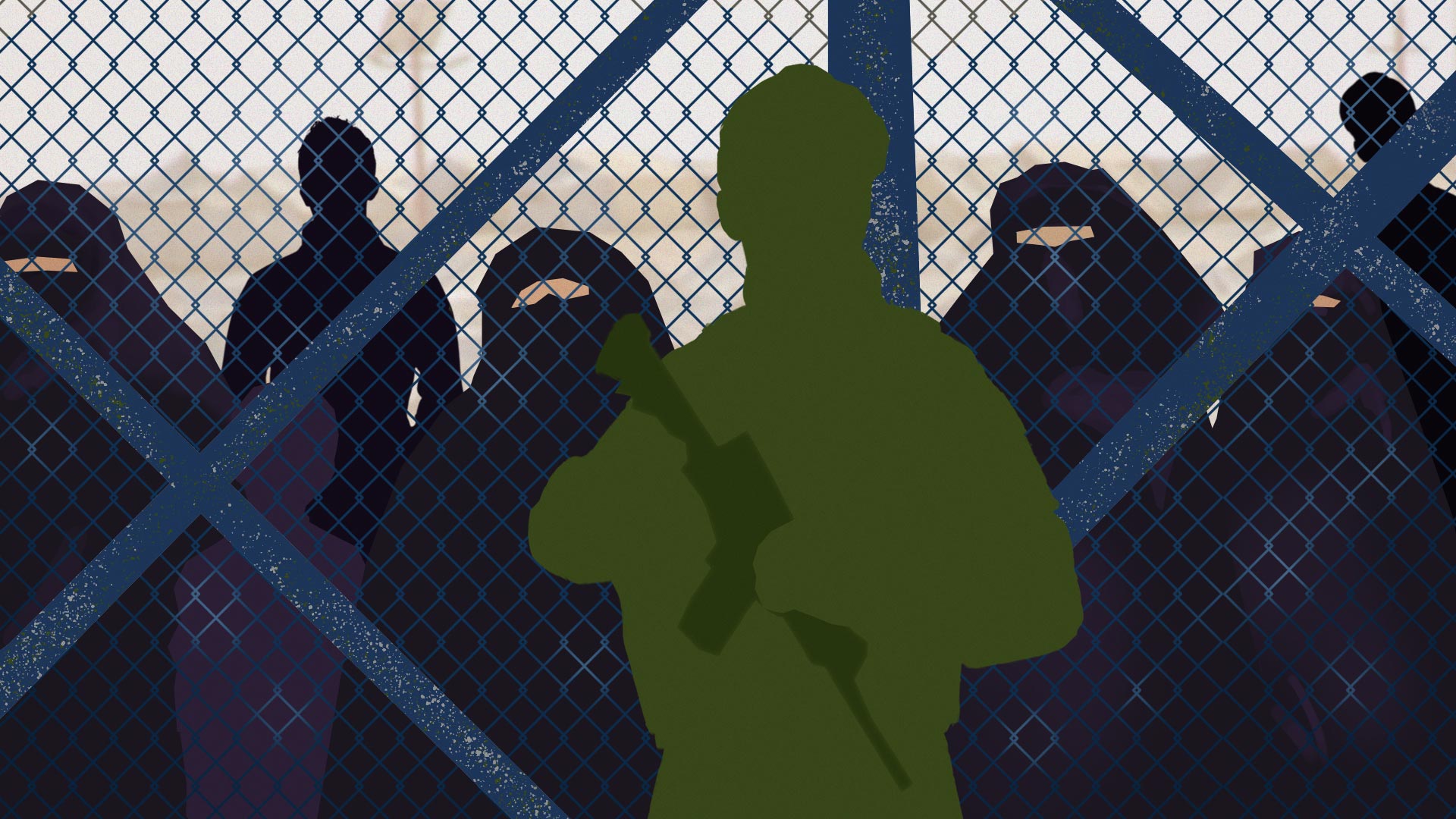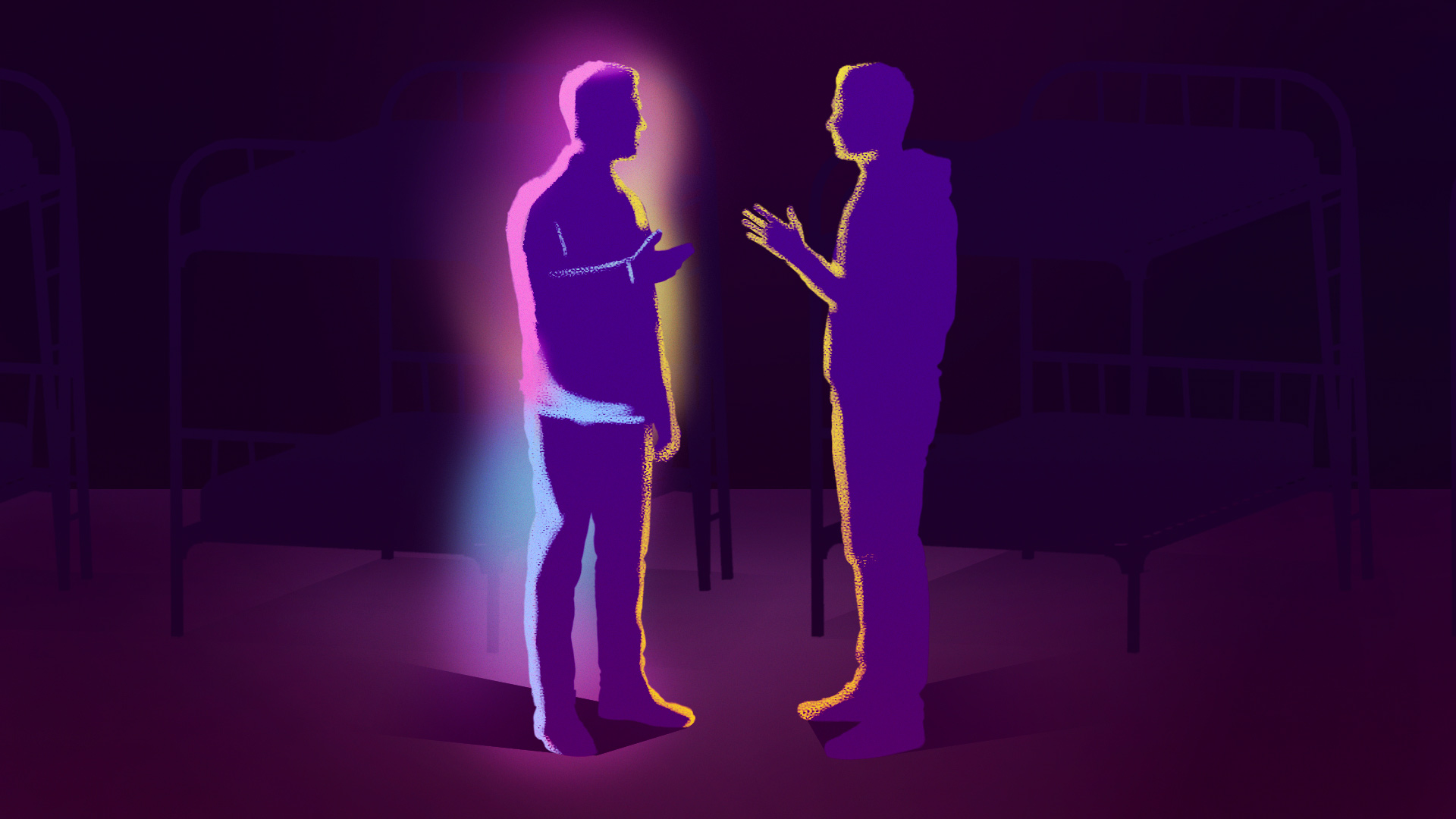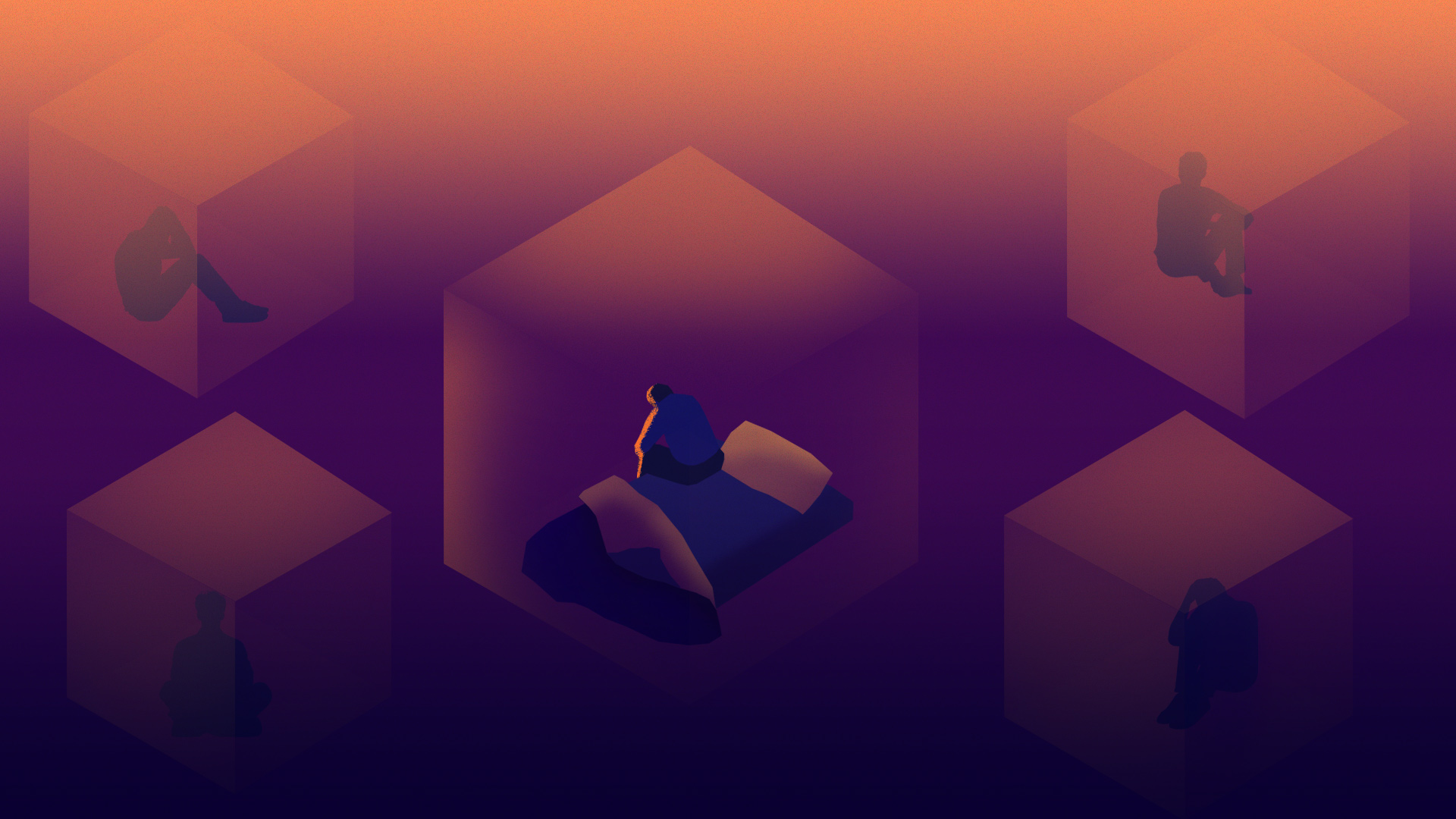Where were you on January 14th ?
Latest episode
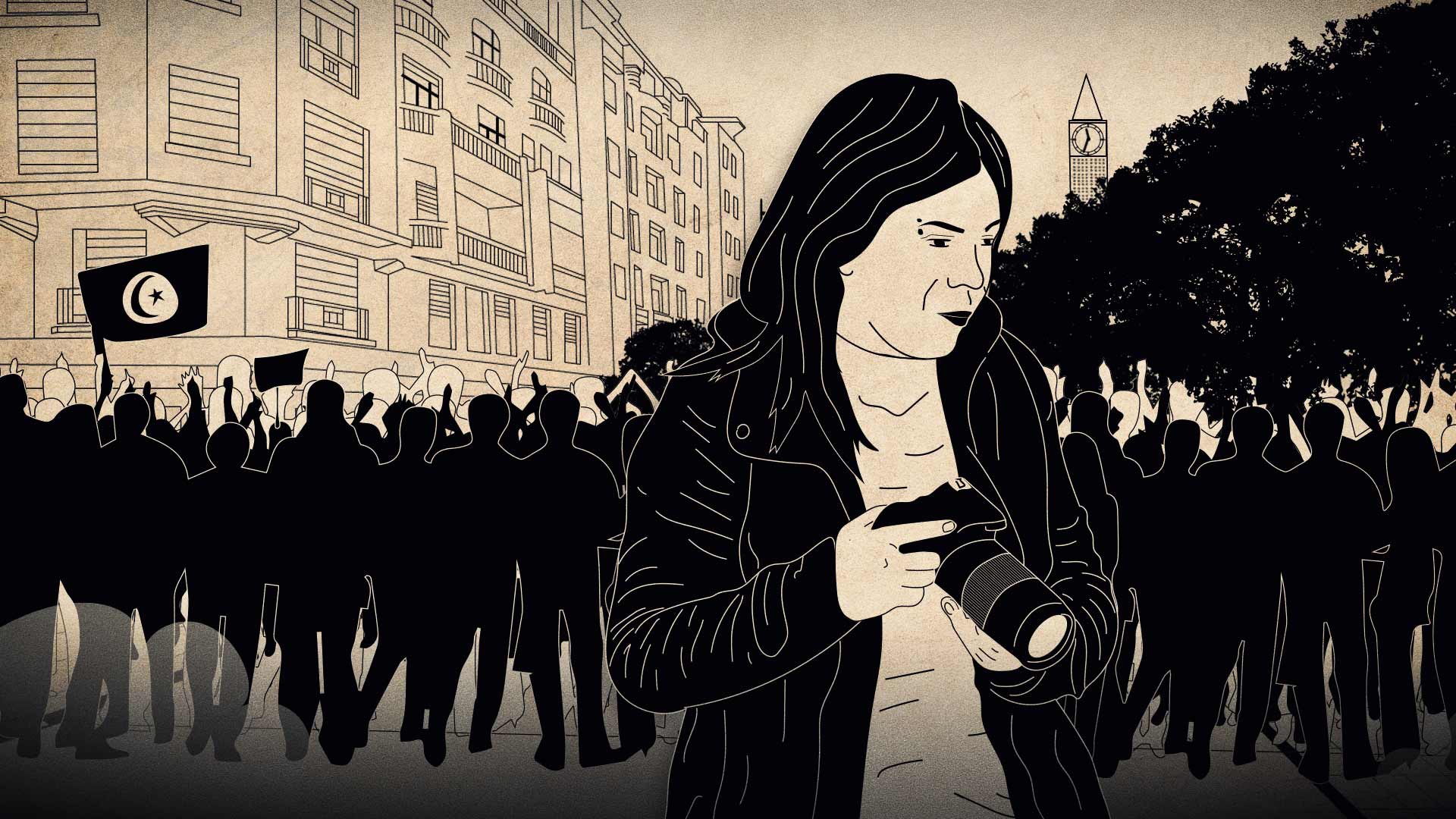
In Lina's Footsteps | Special Episode
ALL EPISODES
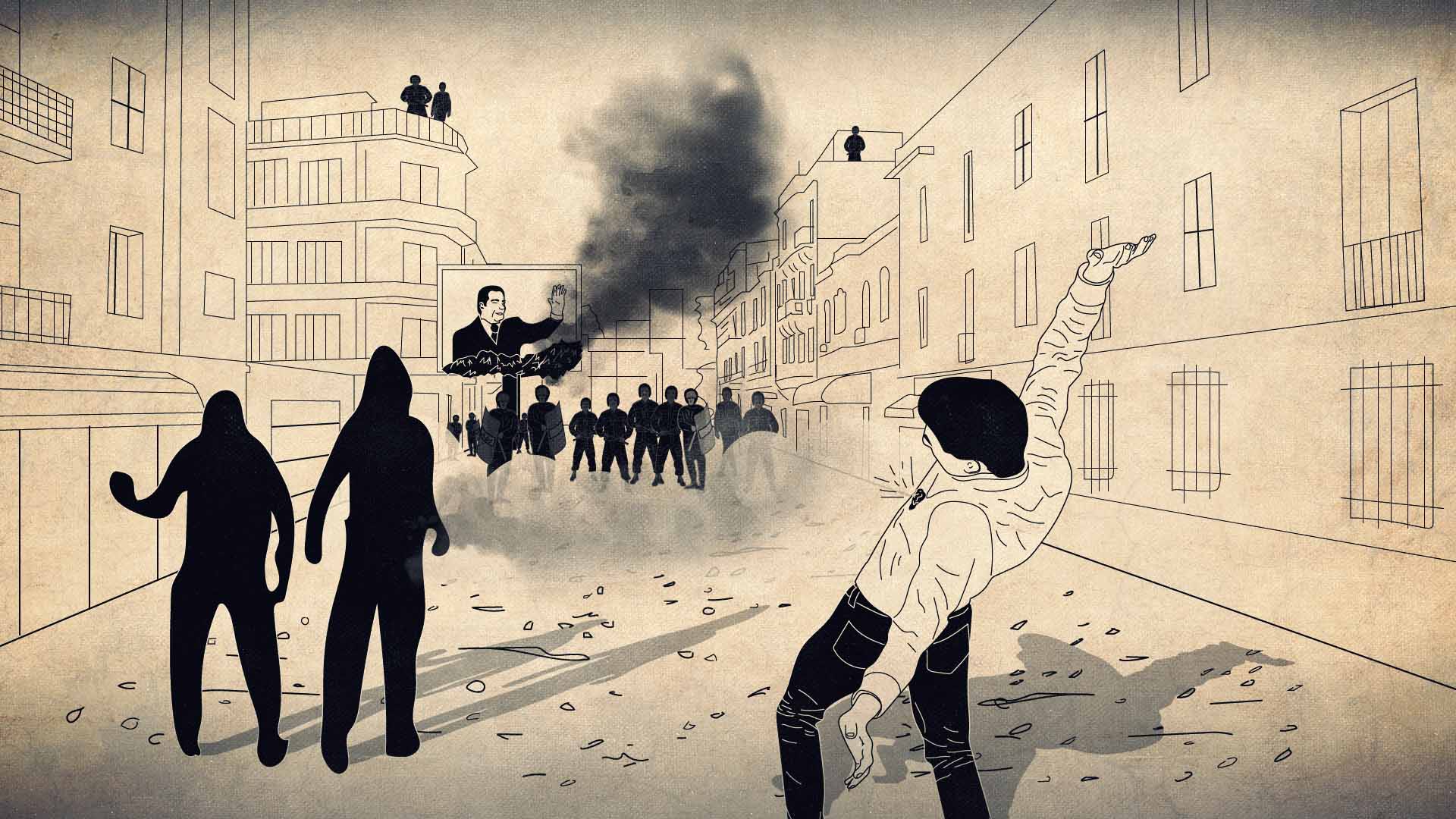 | EPISODE 12A Bullet Straight to the Heart | Throughout the previous episodes, the arrival of Helmi’s funeral procession on Avenue Habib Bourguiba often resurfaces. Ten years later, the circumstances of his death remain unclear. The testimonies of his relatives, interspersed with excerpts from previous episodes, make it possible to reconstruct part of the story: that of a young man and a dictator with interlinked destinies. | |
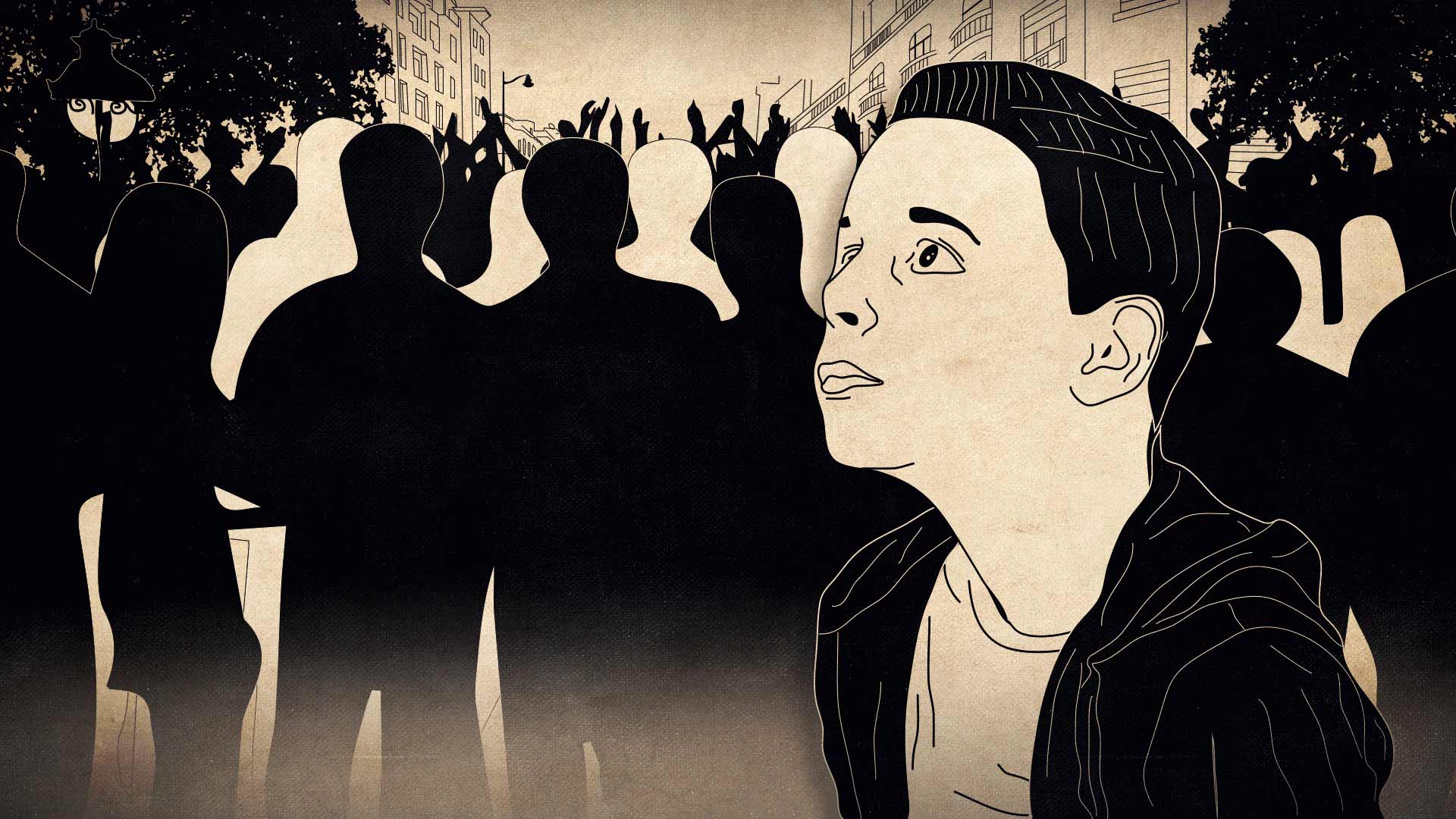 | EPISODE 11A Child's Gaze | January 14th, 2011. Saïf, 12, goes with his* mother to the Avenue. Until the following morning, he would experience things that would mark him for life. Saïf's account of January 14th adds new insight from a child’s perspective. With a great deal of self-distance, ease and tenderness, Saïf recounts his strained yet tender relationship with a mother who ultimately taught him the true meaning of the word "freedom". | |
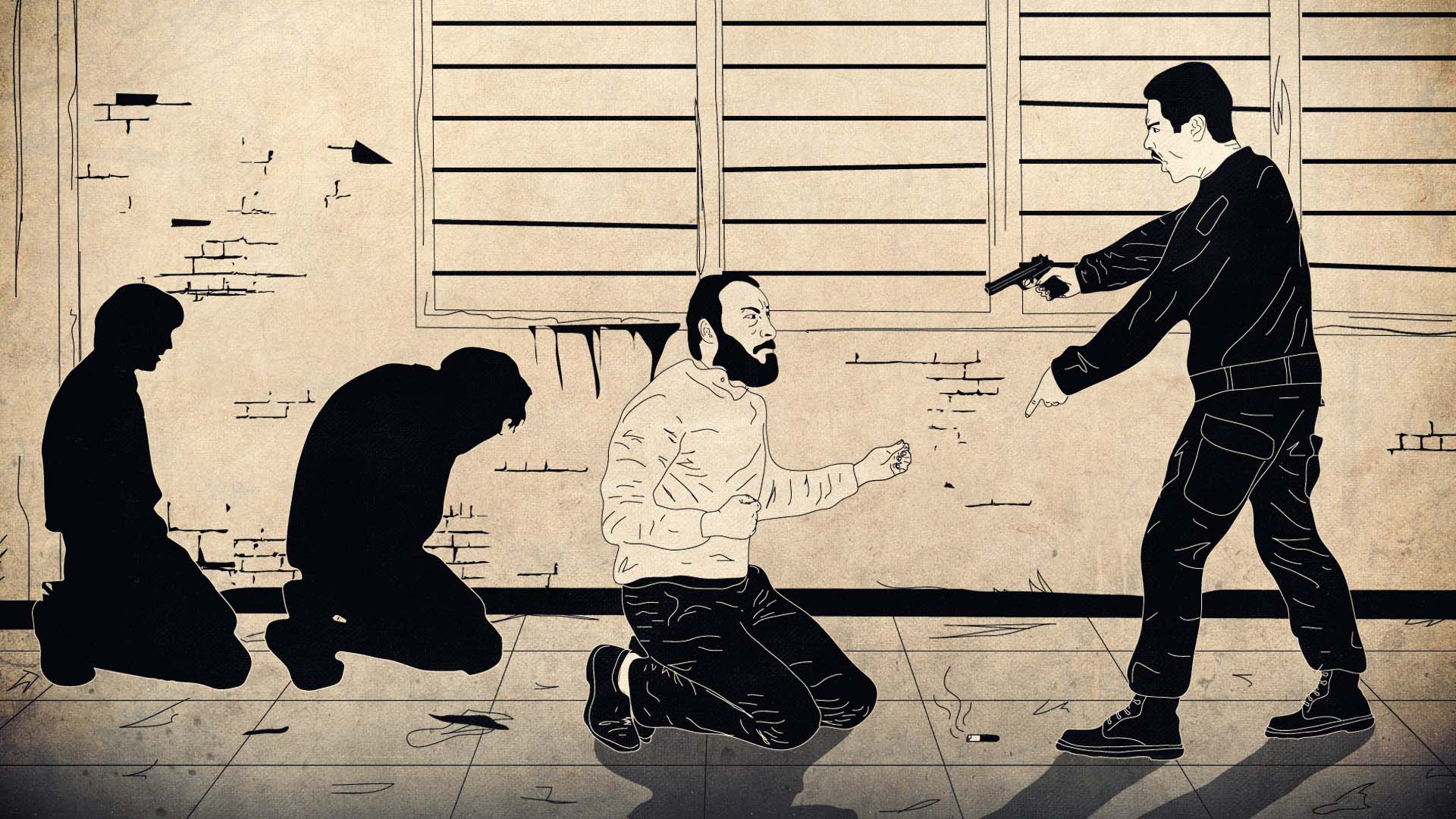 | EPISODE 10Emergency Exit | January 14th, 2011. Alaeddine Slim goes to the avenue to demonstrate. He won't be going home until the next day, after an entire night of unthinkable ordeals. Ala recalls how his office became a place of refuge for 57 people, and how in the middle of the night, some of them had ended up in the Ministry of the Interior, which was being used as a makeshift detention centre. | |
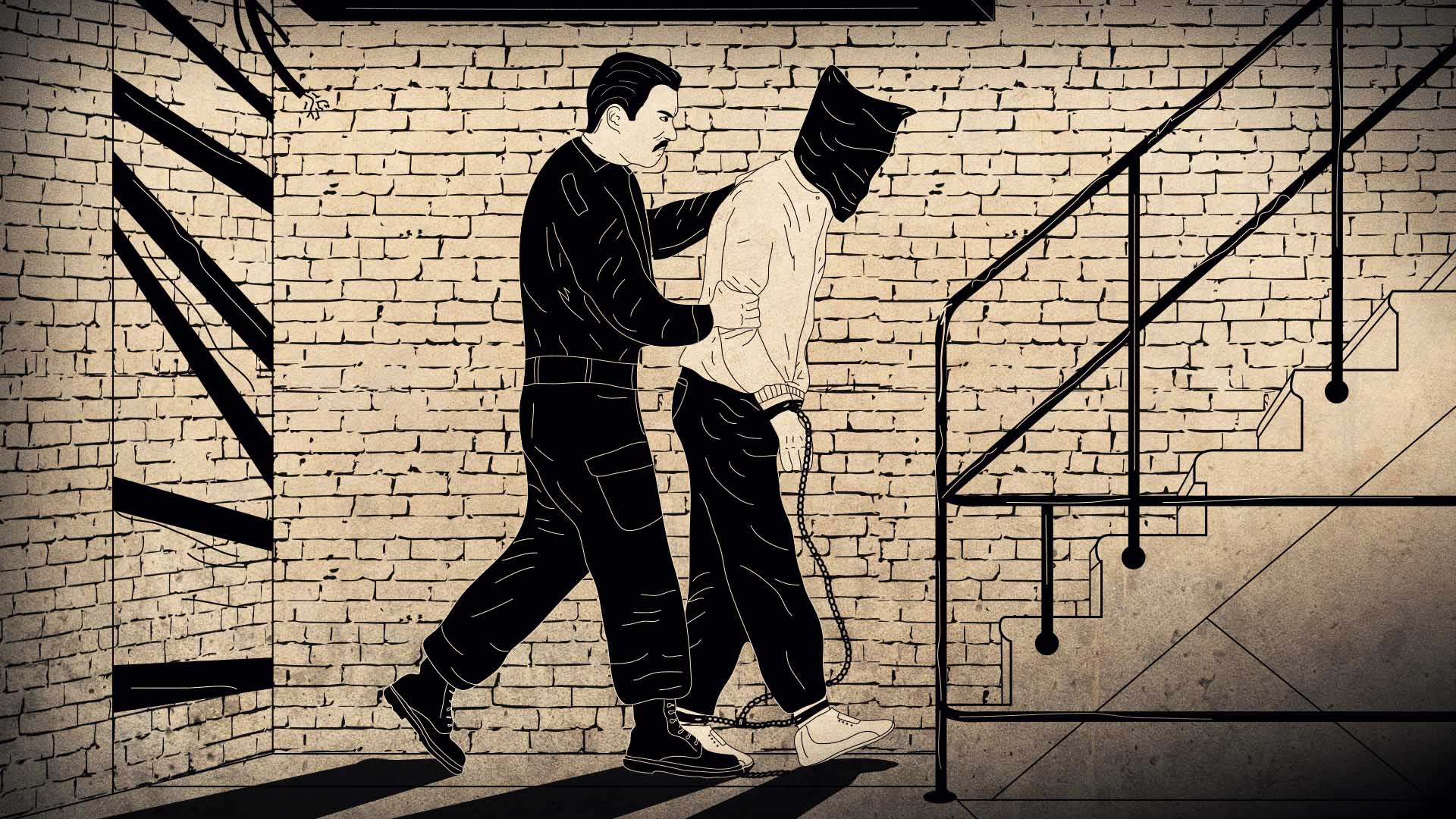 | EPISODE 9Behind the Walls of the Interior | January 14, 2011. Malek is on Habib Bourguiba Avenue but has no idea of what's happening on the ground. He has been imprisoned for days in the Ministry of Interior holding cells. Malek, a young student and opponent of the Ben Ali regime, describes the cellars of the Ministry, the police violence and the notion of losing time. | |
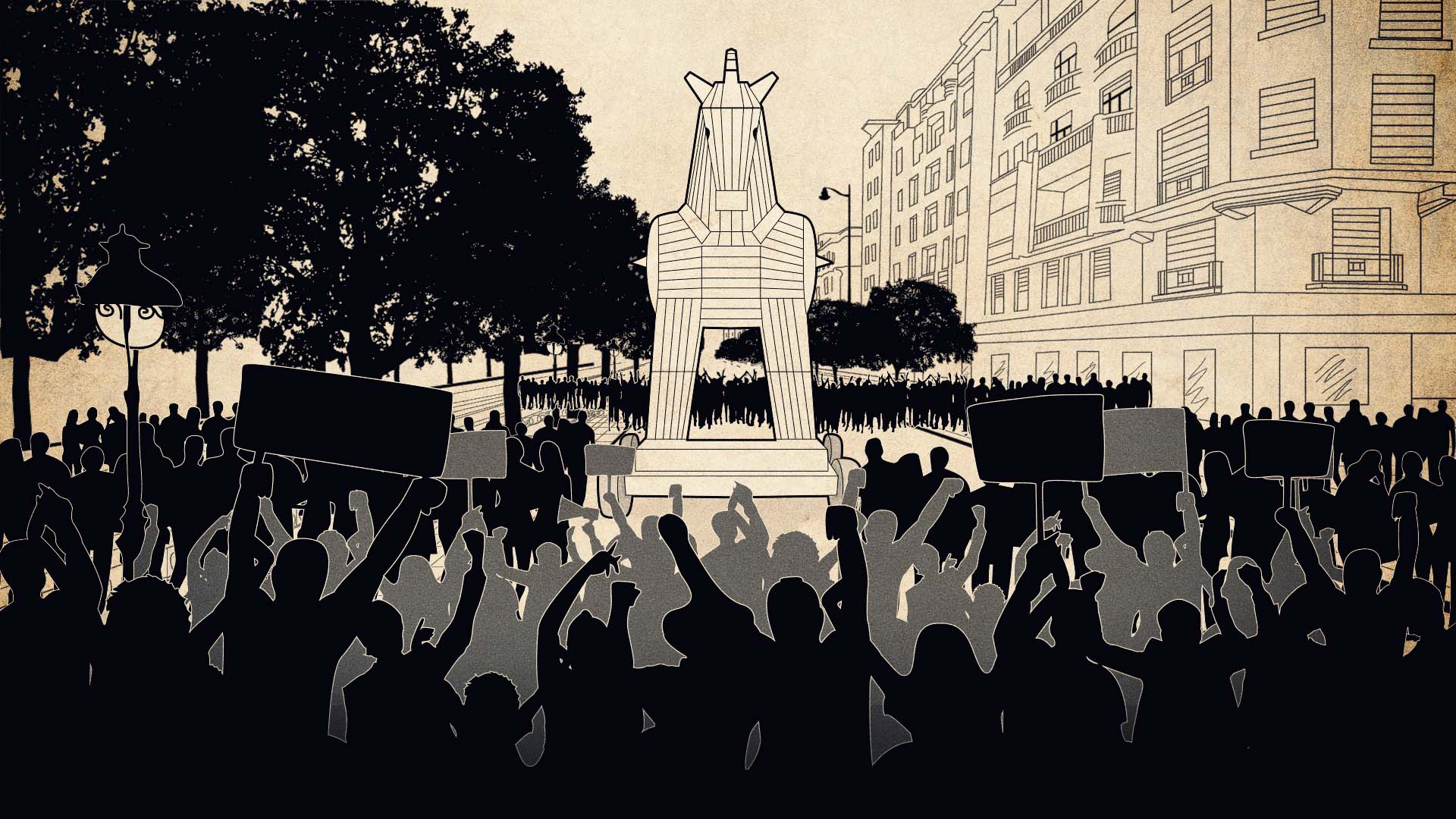 | EPISODE 8The Trojan Horse | On January 14, 2011. Haikel Hazgui (or 'Nash' as his friends call him), defies the authority of his family to confront the authority of Ben Ali's regime. Between Jebeniana, his hometown, and Tunis, he closely follows the events of the revolution. In this episode, Nash recounts the lesser known "forgotten battles". like the one that took place on Jean Jaurès Avenue, only a few meters from Habib Bourguiba Avenue. | |
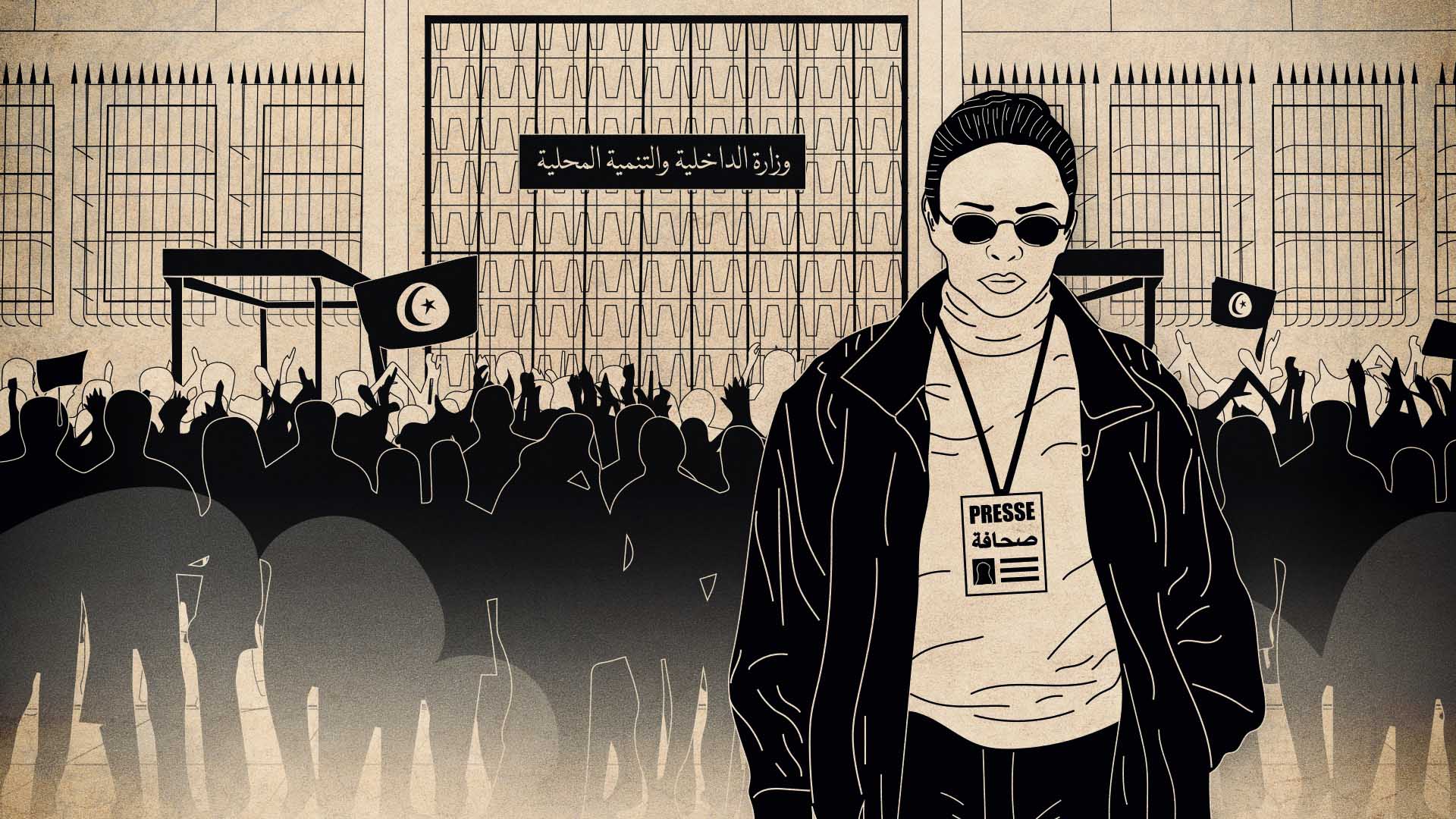 | EPISODE 7Interference on the Airwaves | Rabeb Srairi recently became known from the series "Nouba". In January 2011, she began working for the radio station Shems FM, which was then owned by Ben Ali's daughter. She soon learns what journalism is really about, when covering what turned out to be one of the most significant events in Tunisian contemporary history. | |
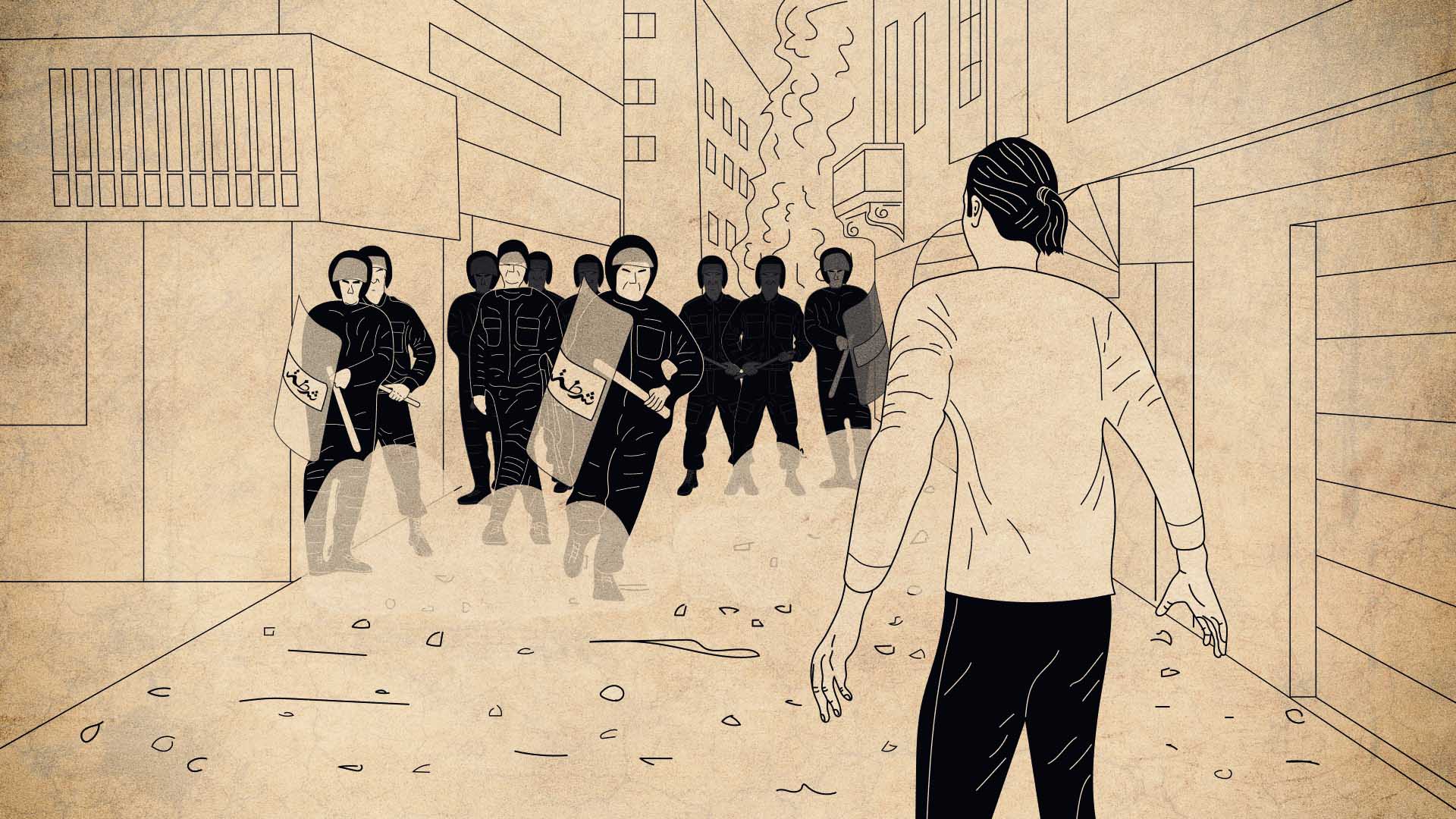 | EPISODE 6A Battlefield | May 13, 2020. Oussema, the sound engineer at Inkyfada, is finishing the final details of the fifth episode, and is inspired to start sharing snippets of his own account of January 14th. The demonstrations that led up to the main event, the awareness of the danger, the solidarity between comrades… Oussema shares his experiences as he mixes and does the sound design to form his own account of the historical day. | |
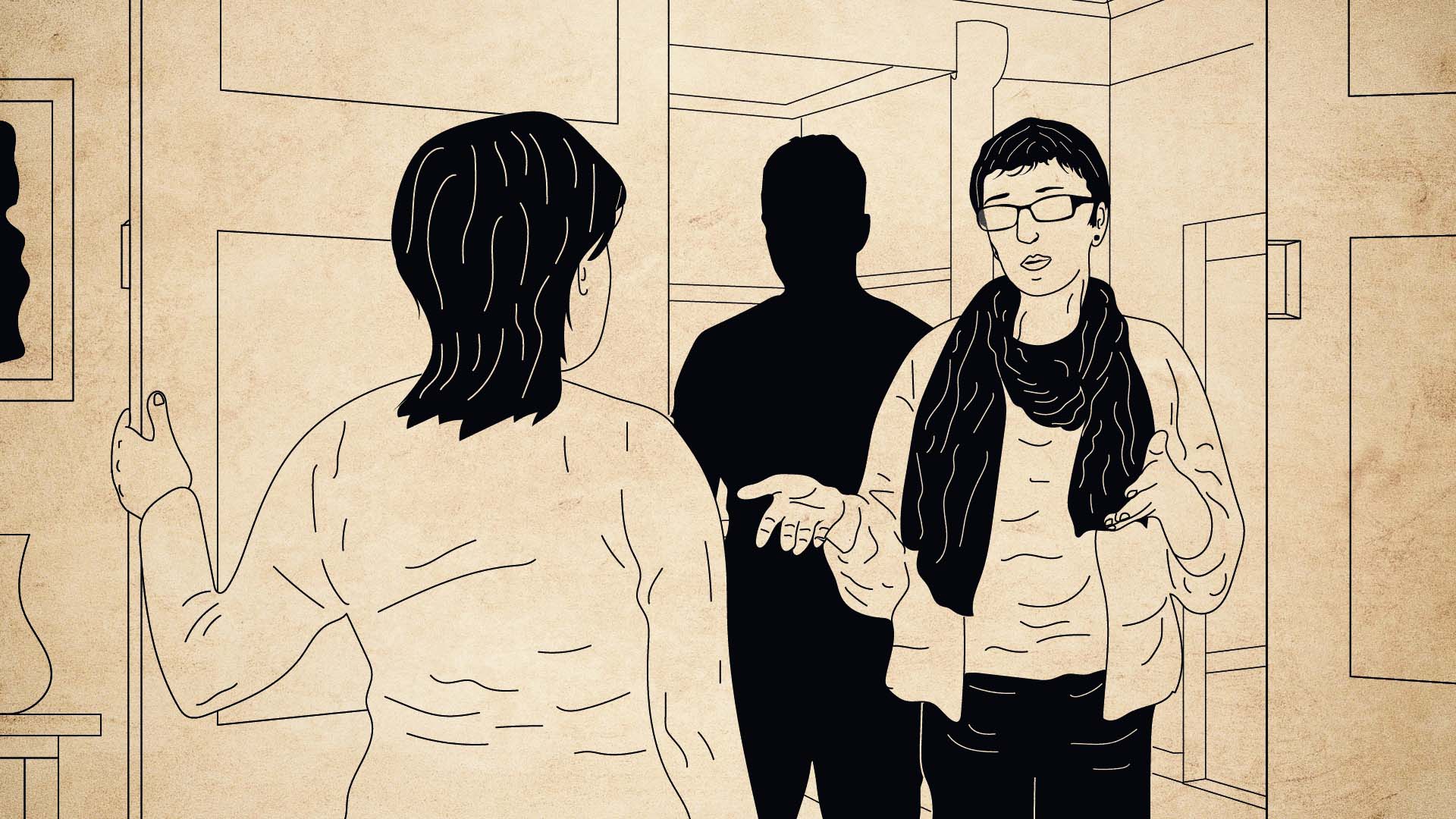 | EPISODE 5Open Doors | January 14, 2011. Like thousands of other Tunisians, Bakhta El Cadhi, a trade unionist and feminist activist, and her daughter Haifa Jmour, headed downtown to join the protests. When the police violence broke out, they were separated and forced to seek refuge in different apartments, just a few dozen meters from each other, but miles apart in experiences. | |
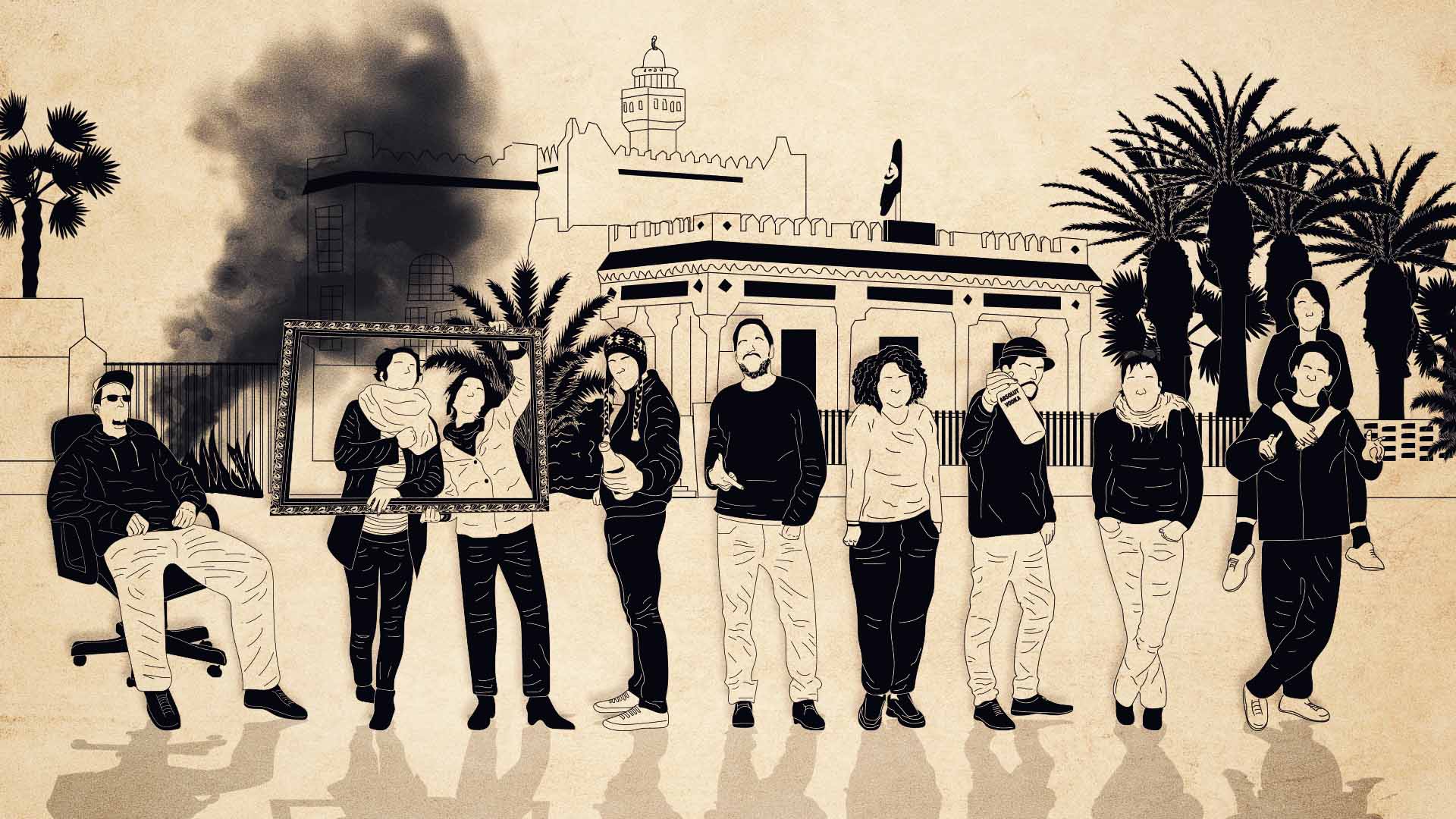 | EPISODE 4A Police Station on Fire | January 14th, 2011. After having spent the day protesting downtown, a dozen friends manage to make their way back to a house in La Goulette, which partly serves as HQ for the Revolution. However, when they arrive, the police station next to their house is on fire. More than nine years later, digitally connected across several different countries, they recall this unforgettable day and night. | |
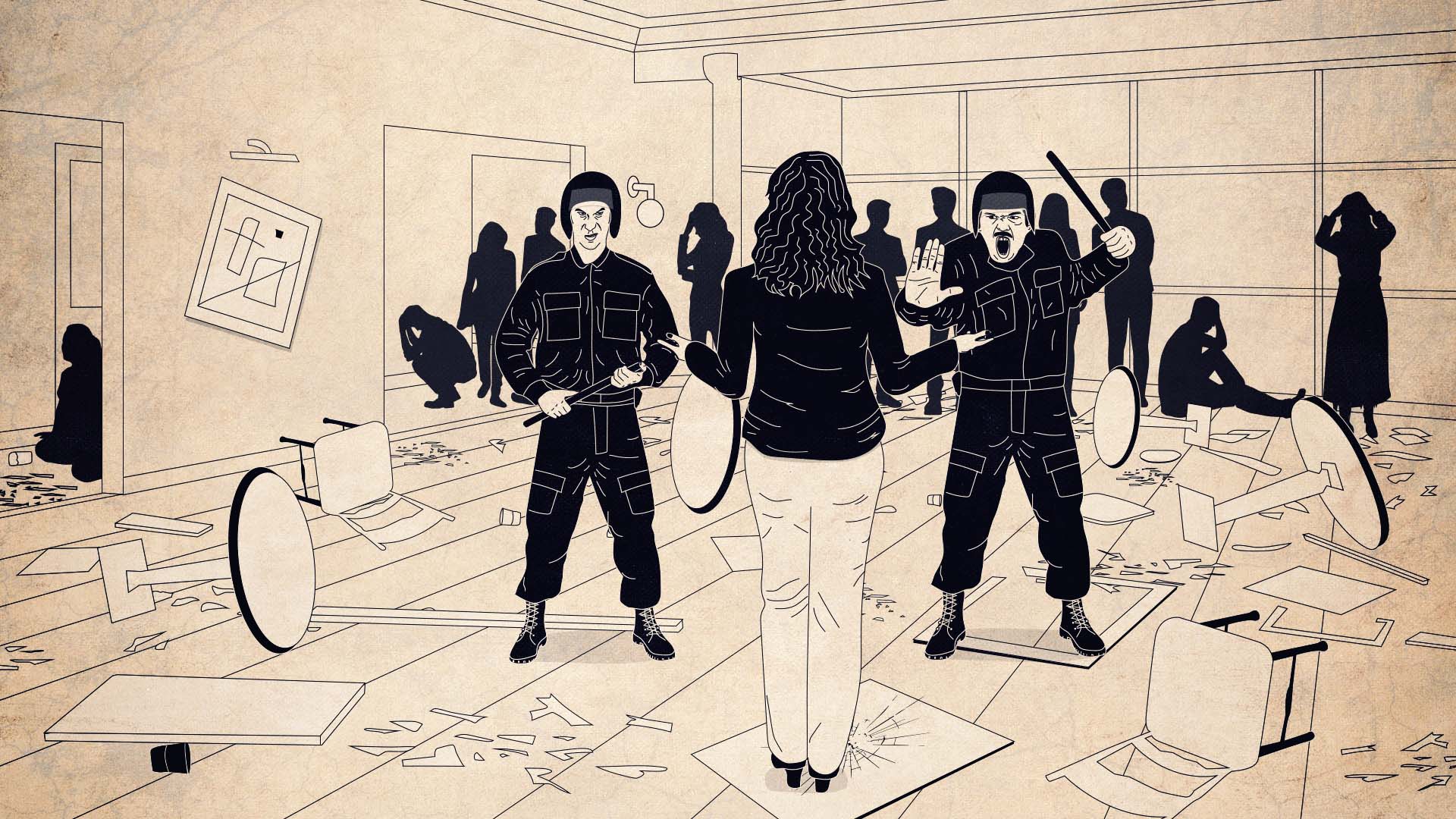 | EPISODE 3A Night at the Hotel | January 14th, 2011. The psychoanalyst and hotel owner Nedra Ben Smaïl cancels all of her appointments for the day. Her intuition tells her to join the demonstration on Habib Bourguiba Avenue. As the police's crackdown begins, more than a hundred people take shelter in her hotel, the Carlton, which is located just across from the Ministry of the Interior. When the curfew is announced, she would be forced to handle the situation. | |
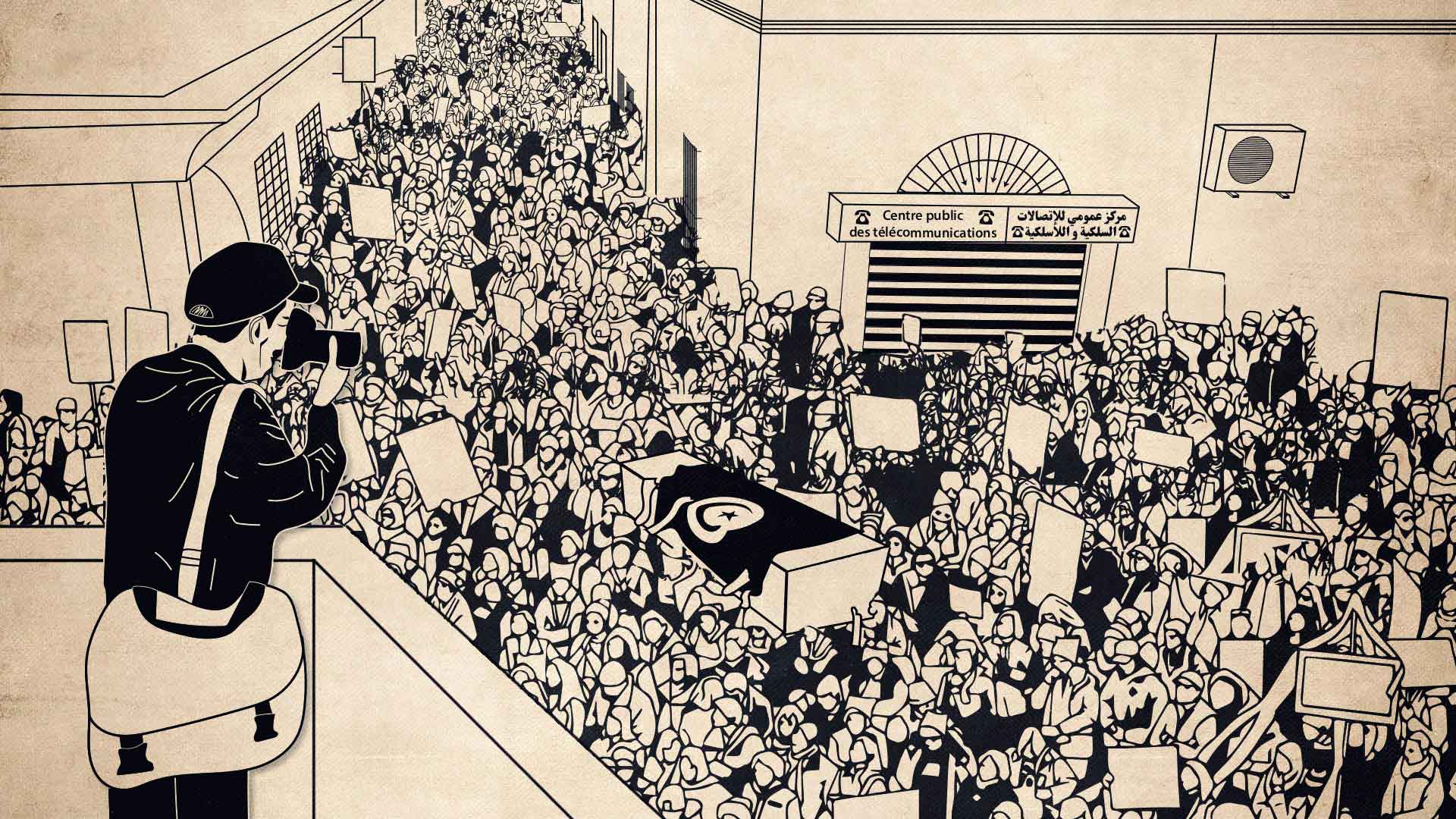 | EPISODE 2View from Above | January 14th, 2011: The destiny of photographer Hamideddine Bouali's takes a turn. Previously, he had exclusively been taking photos of touristic places, but this Friday, January 14th, he found the courage to immortalise the historic day up close. He proceeds to document the unprecedented scenes, following the funeral procession of the young man killed just the day before, to the front steps of the Ministry of the Interior. | |
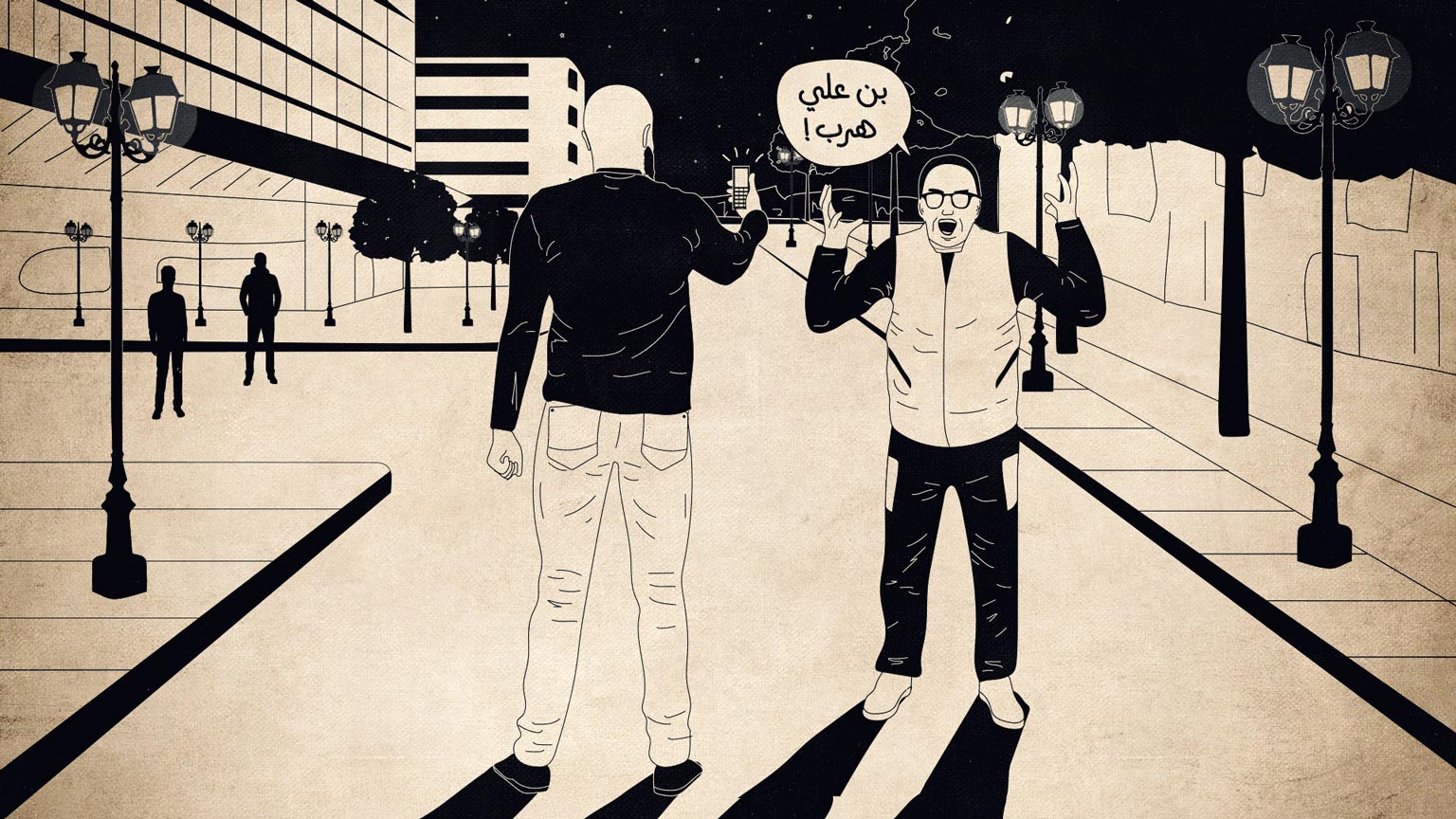 | EPISODE 1"Ben Ali Fled!" | January 14th, 2011. Imed heads downtown to demonstrate against Ben Ali's dictatorship. Night falls, and the streets empty. Imed suddenly hears a voice that breaks the silence: "Ben Ali fled!". The voice belongs to a well-known lawyer and activist whose gesture defies the lockdown, while taking to the streets to celebrate Ben Ali's departure. Imed starts filming a video with his phone that would become symbolic of this historical day. | |
Recommended for you
On Syria's doors
| EPISODE 5
In Parentheses
| EPISODE 4
My body became a battlefield for torture
ABOUT
Inkyfada Podcast is the first platform entirely dedicated to original Tunisian podcasts, and was conceived by Inkyfada media in collaboration with the in-house research and development laboratory, InkyLab. Inkyfada joined the global podcast boom in 2017, when the team produced the first Tunisian audio documentary, diving deep into the belly of the El Kamour struggle taking place in the desert. Since then, Inkyfada Podcast has produced a wide variety of documentaries, investigations, and podcast series, as well as articles accompanied by music; covering a multitude of contemporary issues in order to offer an immersive and alternative podcast experience. Whilst exclusively offering audio content, the Inkyfada Podcast team upholds the same core values and principles of inkyfada.com, and is committed to producing high quality content though a dynamic and meticulous production process. In addition to the permanent team, Inkyfada podcast works closely with various journalists, artists, illustrators, musicians and other content creators in order to diversify the platform and support artistic creativity. These podcasts differ from traditional radiophonic content in that the applied production and editing process is more akin to cinematographic techniques, in addition to being web-based, downloadable and accessible on demand. Additionally, Inkyfada Podcast uniquely offers subtitles in French, Arabic and English for all audio content, the majority of which is recorded in Tunisian or in the preferred language of the speaker in question.




